#Security Scan 89: US sends Israel thousands of bombs, America's Religious Freedom Report & more
The radicalization of Habibullah and other youths in Bardhaman districts has raised serious concerns among security and intelligence agencies.
Total Views |
This article is a summary of important events that have taken place in last one week affecting, India's national security.
News In Brief
Berlin’s shift on China policy is result of Beijing’s changed behaviour, German envoy says
Beijing’s actions, not US pressure, has led Berlin from ‘partnership and cooperation to more competition’, Thomas Bagger of German foreign ministry contends.
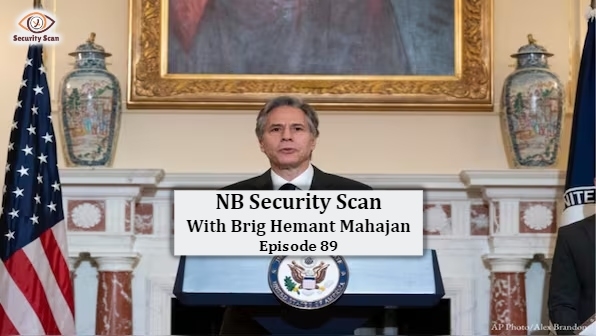
Why China’s latest corruption probes hint at fury, betrayal over political disloyalty
Expulsions of former defence ministers Li Shangfu and Wei Fenghe suggest deep frustration in Communist Party leadership, analysts say.
India is losing interest in the Shanghai Cooperation Organization, Membership provides little benefit
India appears to be having second thoughts about its involvement in the Shanghai Cooperation Organization as the group's anti-Western orientation is increasingly at odds with the subtle pro-Western tilt of Prime Minister Narendra Modi's foreign policy.
US has sent Israel thousands of 2,000-pound bombs since Oct. 7
The Biden administration has sent to Israel large numbers of munitions, including more than 10,000 highly destructive 2,000-pound bombs and thousands of Hellfire missiles, since the start of the war in Gaza, said U.S. officials.
Between the war's start last October and recent days, the United States has transferred at least 14,000 of the MK-84 2,000-pound bombs, 6,500 500-pound bombs, 3,000 Hellfire precision-guided air-to-ground missiles, 1,000 bunker-buster bombs, 2,600 air-dropped small-diameter bombs, and other munitions.
Countering Internal & External Security Challenges
Modi 3.0 and the China Threat: A Tense Battle of Nerves Ahead
Calibrated Moves on Tibet and Taiwan
Prime Minister Narendra Modi's third term indicates a strategic and calibrated approach towards China, particularly concerning Tibet and Taiwan. These moves could potentially exacerbate the crisis further.
Historical Context and Current Challenges
The relationship between India and China, crucial for India's rise, is often debated along political and ideological lines. As Modi's government begins its third term, there is uncertainty about whether it will continue with previous policies or adopt a new approach.
Collapse of the Bilateral Framework
The bilateral framework established in the 1990s has collapsed, mainly due to China's power advantage and its attempts to redraw the status quo along the 3,440 km-long Line of Actual Control (LAC). Despite India's efforts to persuade China to revert to the pre-2020 status quo, these efforts have failed, leading to a dangerous military confrontation.
Need for a New Bilateral Framework
To prevent an eventual catastrophic conflict, there is an urgent need for a new bilateral framework. However, with China adopting a maximalist position, India's options are limited to acceptance or aggression. Twenty-one rounds of military-level talks have achieved some progress, but not enough to break the deadlock.
India's Strategic Responses
In response to the ongoing crisis, India is enhancing its border infrastructure and exploring external balancing by aligning closer with the US and its regional allies. However, these measures have not given India enough leverage to force China to de-escalate.
Chinese Perspective and Misalignment
Chinese incursions have continued even during high-level meetings between leaders. The Chinese perspective, suggests that China is preparing for the worst at the LAC and views India's stance as uncooperative.
Leveraging External Partnerships
India is leveraging its partnerships with the US and other allies to create more strategic options. Recent developments, such as India's plans to rename places in Tibet and hosting a bipartisan US Congressional delegation supporting Tibet, signal a stronger stance against China's aggression.
Economic and Political Moves
Modi's government has also taken steps like refusing to resume direct civilian flights with China and avoiding direct interactions with Chinese President Xi Jinping. These moves are part of a broader strategy to gain leverage and force China into meaningful engagement.
China's Strategic Calculations
China views India's attempts to tie normalization of relations to the resolution of the border crisis as arrogance and remains confident in its superior power position. It believes that despite India's dynamic diplomacy and deepening ties with the West, India will ultimately be forced to accept China's primacy in Asia.
A Battle of Nerves
Modi's recent moves indicate a battle of nerves between India and China. While external balancing and a fast-growing economy are India's best options, the outcome of the US presidential elections could significantly influence the geopolitical landscape. The road ahead is fraught with challenges for China.
America's Religious Freedom Report: Main Purpose Political Motives and Misrepresentations
Politically Motivated Criticism
US Secretary of State Antony Blinken's recent criticisms of India, based on the State Department’s annual International Religious Freedom Report, appear politically motivated. These remarks coincide with the Indian Prime Minister’s potential visit to Moscow, highlighting USA attempts to pressurise India.
A Pattern of Unsolicited Advice
The United States has a history of issuing unsolicited advice to sovereign nations based on self-certified reports. This pattern continues with the latest report, which has been criticized by Indian External Affairs Minister S. Jaishankar and Bangladeshi Prime Minister Sheikh Hasina for its coercive and interventionist nature.
Impact on International Relations
Despite the critical tone of these reports, they have little tangible impact on international relations.
Typically, the Indian government responds with a statement denouncing the report as biased, but no substantial counter-study is provided to challenge the American narrative.
Geopolitical and Economic Dependencies
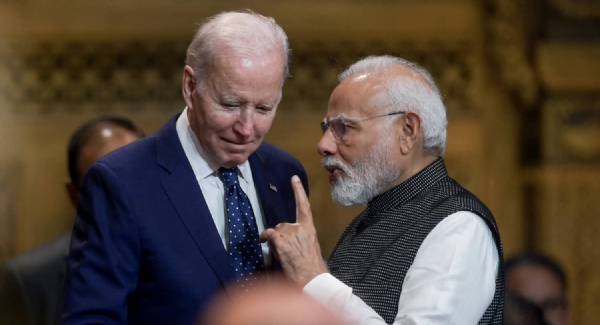
The Indian government remains focused on diversifying its defense procurement away from Russia while maintaining friendly relations with the US. The American administration, meanwhile, expresses its dissatisfaction with India's geopolitical strategies through reports and press conferences, often based on skewed statistics.
The Democrat Government's Stance
The current US administration under President Biden has been particularly critical of India's rise. Reports on religious freedom contain inaccuracies and lack thorough analysis, reflecting a broader confusion in American foreign policy.
Misrepresentation of Facts
The report's portrayal of religious freedom in India often lacks factual accuracy. For instance, it exaggerates the scale of Christian protests in New Delhi and criticizes laws against forced religious conversions without acknowledging the broader context of religious tensions in the region.
Ignoring Other Minorities
While the report focuses extensively on perceived issues faced by Muslims, it overlooks the challenges faced by other minority communities in India, such as Parsis and Jains, who receive little political attention or protection.
Questionable Neutrality
The neutrality of the report is questioned due to the involvement of officials with specific religious and political backgrounds, such as Rashad Hussain, the US Ambassador-at-Large for International Religious Freedom, whose past affiliations suggest potential bias.
Propaganda and Lack of Counter-Narratives
The US State Department's reports, along with those from the USCIRF, are often seen as political propaganda. The Indian government has labeled the USCIRF as a biased organization, pointing out its connections with influential donors and religious networks. Despite these criticisms, these reports remain influential due to the lack of alternative studies.
The Need for Balanced Studies
In an interconnected world, there is a pressing need for more balanced and intellectually rigorous studies on religious freedom. Without these, indigenous faiths and communities risk being misrepresented and marginalized on the global stage
Rising Extremism in Bengal: A Growing Concern
Recent Bust of Terror Module 'Shahadat'
The issue of extremism in Bengal is escalating, with inadequate political measures to counteract Islamist groups. The recent dismantling of an Islamist terror module named ‘Shahadat’ by the Bengal Police’s Special Task Force (STF) highlights the severity of the situation.
Radicalization of Mohammad Habibullah
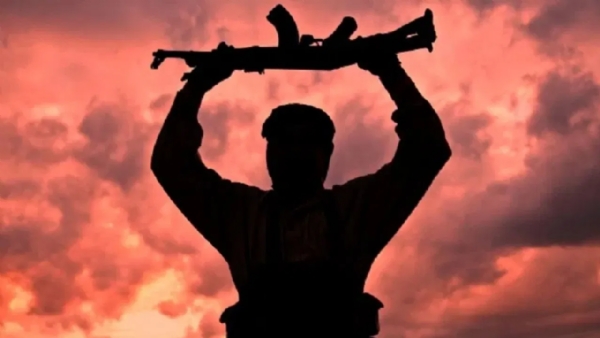
Mohammad Habibullah, the leader of this module, is a second-year computer science student at Mankar College in Purba Bardhaman. A senior Bengal Police officer described the 21-year-old as highly radicalized, with strong connections to leaders of Bangladeshi terror outfits.
Habibullah's Background and Recruitment
Habibullah, a reserved and soft-spoken individual from Mirpara village in Paschim Bardhaman, was detained by the STF, which seized several electronic devices from him. Counter-terrorism experts revealed that ‘Shahadat’ is the Bengal wing of Bangladesh’s Shahadat-e al-Hiqme, linked to the Ansarullah Bangla Team (ABT) and Al-Qaeda in the Indian Subcontinent (AQIS).
Formation and Activities of Shahadat
Habibullah established ‘Shahadat’ in late 2022, at the age of 19. He had been in contact with radical Islamist groups online since Class VII and was groomed by ABT and Shahadat-e al-Hiqme operatives. The STF also detained five more youths recruited by Habibullah from Purba and Paschim Bardhaman.
Espionage Attempts in Panagarh
Habibullah was arrested in Panagarh, home to significant defense establishments. He was tasked with gathering sensitive information about the movement of aircraft and troops, but his efforts were largely unsuccessful. However, his radicalization and role as the ‘Amir’ (head) of a terror cell remain alarming.
Links with Other Radical Outfits
‘Shahadat’ has connections with Hyderabad-based Darsgah-Jihad-O-Shahadat, which is linked to Pakistani terror outfits controlled by ISI. The radicalization of Habibullah and other youths in Bardhaman districts has raised serious concerns among security and intelligence agencies.
Radicalization in Mosques and Madrassas
Radical clerics in mosques and unregistered madrassas are primarily responsible for the radicalization of both illiterate and educated Muslim youths. These clerics target academically proficient students, grooming them for terror activities and leveraging their computer skills for operations on the dark web.
Political Challenges in Tackling Extremism
Efforts to monitor and control radicalization are hindered by political constraints. Bengal’s political leadership, including Chief Minister Mamata Banerjee, is reluctant to implement extensive surveillance on clerics, mosques, and madrassas due to fear of alienating Muslim voters and powerful Muslim politicians with links to Islamist outfits.
The Urgent Need for Action
The discovery of Habibullah’s ‘Shahadat’ module is just the tip of a potentially dangerous iceberg threatening Bengal and India’s security. Without decisive action from the ruling dispensation in Bengal, the risk posed by radical Islamist groups will continue to grow, endangering national security.
#COUNTERING CHINESE MULTI DOMAIN , GREY ZONE, HIGH BREED WARFARE
Chinese yuan is currently in the spotlight due to its recent depreciation against the dollar
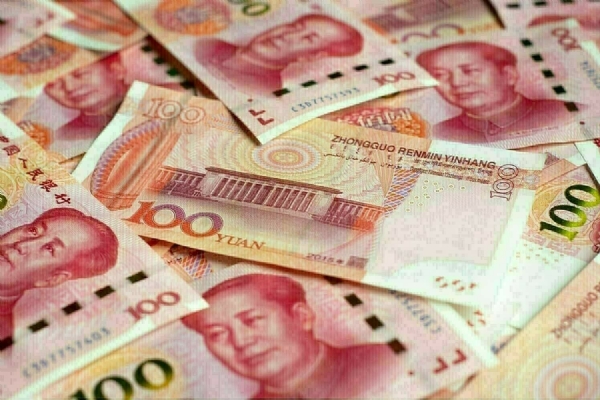
The Chinese yuan is currently in the spotlight due to its recent depreciation against the dollar, alongside other Asian currencies. Speculation has arisen over whether Beijing is engaging in competitive devaluation or planning to do so, raising concerns about potential trade conflicts.
Examination of Yuan Devaluation
The short answer to the speculation is no. The yuan has indeed lost significant value against the dollar in onshore trading, which is closely managed by Beijing within a specific exchange-rate band. It reached a seven-month low of 7.27 yuan to the dollar on Wednesday, marking five consecutive months of decline. Similarly, the offshore yuan, where Beijing exerts less control, depreciated to about 7.30 yuan to the dollar.
Beijing's Approach to Currency Management
Beijing appears to be allowing a modest depreciation of the yuan, as seen by the gradual weakening of the administered midpoint for the onshore yuan. However, this does not seem to be a deliberate strategy to gain a competitive advantage in export markets, contrary to what some American trade advocates suggest. The onshore exchange rate continues to test the lower limits of Beijing's trading range, with the Chinese government resisting deeper devaluation.
Preferences of China's Leadership
President Xi Jinping and the Communist Party leadership likely favor a stronger yuan to support their goal of expanding its use as a global trading currency. In January, Xi emphasized that a "strong currency" is crucial for the development of China's financial markets, indicating a preference for a more robust yuan.
Europe's Security Role in the Indo-Pacific: Making It Meaningful
U.S. engagement toward Europe has been effective in highlighting the growing economic challenge posed by China in the Indo-Pacific region and beyond. This alignment of European perspectives and approaches to the Indo-Pacific, although uneven across European capitals, has made the rising economic challenge posed by China a major focus of transatlantic discussions. However, the picture is less clear on defense and security issues.
Unfocused Engagement and Security Challenges
The lack of focused engagement and occasional mixed messages from Washington raises important questions: What security role should the United States seek for Europe in the Indo-Pacific? Can European partners make a meaningful contribution to deterrence and contingency response in the region, and if so, how?
Europe's Interest in the Indo-Pacific
This report finds that Europe has a significant interest in upholding a free and open Indo-Pacific and can contribute to regional security in targeted ways. The deepening cooperation and engagement between Moscow and Beijing underscores that security in Europe and the Indo-Pacific are linked. Therefore, a deeper European role in Indo-Pacific security would be a welcome development and should be encouraged by Washington.
Constraints and Priorities for Europe
Yet, Europe’s role in the region in the near term is constrained by its limited military means and by the direct and intensifying challenge posed by Russia. Europe’s priority should therefore be to ensure its own security in the face of the Russian threat and to build the capacity to enable the United States to shift focus and respond effectively in the event of a military contingency or crisis with China.
Taiwan’s Exclusion from Interpol: A Global Security Issue
Politicking by the Chinese Communist Party
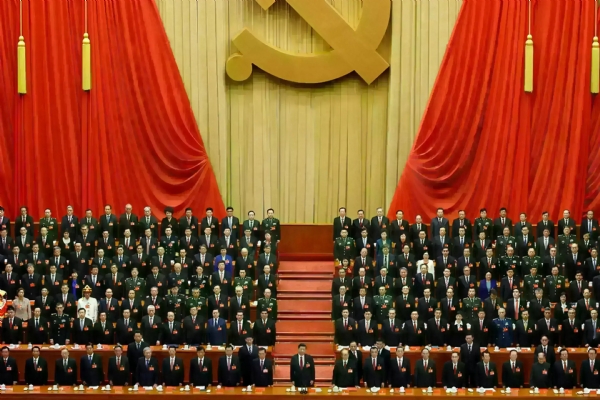
Since 1984, political manoeuvring by the Chinese Communist Party has blocked Taiwan's membership in Interpol, preventing the timely sharing of crucial criminal information and intelligence. This exclusion weakens global security and benefits organized crime.
The Insufficiency of Political Placation
Placating the CCP is an insufficient reason for excluding Taiwan from Interpol. To enhance global security, Taiwan should be granted observer status at Interpol’s 92nd General Assembly in Glasgow in November 2024. This status would allow Taiwan to cooperate with Interpol and better combat transnational crime.
Taiwan: A Crucial Law Enforcement Stakeholder
Taiwan plays a vital role in law enforcement within the Asia-Pacific region, possessing critical intelligence and operational capabilities. The National Police Agency (NPA) of Taiwan is renowned for its professionalism and advanced expertise. Internationally, the NPA is actively involved in efforts against terrorism, cybercrime, human trafficking, and drug smuggling, contributing to Taiwan's low crime rates.
Challenges Faced by Taiwanese Nationals
Despite its successes, Taiwanese nationals are still victims of crime both domestically and abroad, and some are involved in transnational organized crime. The NPA’s absence from Interpol restricts the region’s ability to effectively combat such activities.
Human Rights and Humanitarian Concerns
Taiwan’s exclusion from Interpol raises significant human rights and humanitarian issues. Victims of transnational crimes, including human trafficking and terrorism, suffer regardless of geopolitical boundaries. Including Taiwan in Interpol would enhance protection for these victims and strengthen international efforts to prevent and prosecute crimes against humanity. Exclusion allows transnational crime networks to exploit gaps in international cooperation.
A Call for Fairness and Justice
Taiwan’s exclusion from Interpol is a glaring omission. Granting it observer status would uphold principles of fairness and justice, and meaningfully enhance global security cooperation. Setting aside political considerations to focus on de-politicizing the fight against transnational crime is essential for advancing shared goals of security, justice, and human rights worldwide.
World At War: Lessons For India
From Ukraine to Taiwan: How 'Zones of Denial' Strategies Dominate 21st-Century Modern Warfare
A New Era of Modern Warfare
Anti-access/area denial (A2/AD) tactics are revolutionizing modern warfare. These strategies aim to prevent adversaries from entering a theatre of operations and limit their freedom of action within it, fundamentally altering the geopolitical landscape.
Ukraine: Drones as Game Changers
In the ongoing conflict between Ukraine and Russia, the use of drones highlights the effectiveness of A2/AD strategies. Ukraine has successfully deployed unmanned aerial vehicles (UAVs) to disrupt and destroy Russian tank formations. These inexpensive and readily available drones act as persistent threats, complicating Russian maneuvers and diminishing their armored superiority. This asymmetric approach leverages technology to create zones of denial, significantly hindering traditional heavy armor operations.
Economic Efficiency of A2/AD
The economic efficiency of A2/AD strategies is evident in Ukraine's use of drones. For instance, Ukrainian drones, like the A22, cost approximately $300,000 each, while Russian T-90 tanks can exceed $4.5 million. This disparity underscores the advantage of using cost-effective drones to neutralize much more expensive armored vehicles. The substantial costs inflicted on Russia have bogged down one of the world’s most formidable strike forces.
The Houthis: Disrupting Global Trade
In the Red Sea, the non-state Houthis have imposed a maritime curfew using missiles and drones costing less than $200,000. This strategy has forced 12% of the world’s cargo, including 30% of container cargo, to navigate via South Africa, significantly increasing shipping costs. If the disruption persists, it could add as much as 2% to global inflation. The Houthis' ability to dramatically disrupt global trade with inexpensive technology exemplifies the power of A2/AD in leveraging geographical chokepoints.
Taiwan: A2/AD as a Defensive Strategy
Facing the threat of a Chinese attack, Taiwan has adopted A2/AD as a key component of its defense strategy. By developing a network of missile batteries, anti-ship cruise missiles, and advanced air defense systems, Taiwan aims to make the cost of aggression prohibitively high for Beijing. The credible threat of attrition serves as a deterrent, reinforcing Taiwan's defensive posture.
China: Countering US Naval Dominance
China has also developed robust A2/AD capabilities, focusing on countering the United States’ naval dominance. The People’s Liberation Army (PLA) has invested heavily in anti-ship ballistic missiles (ASBMs), such as the DF-21D, known as the “carrier killer.” These missiles are designed to target US aircraft carriers, creating vast zones of denial and undermining American power projection in the Asia-Pacific region. China's strategic intent is to assert control over contested areas like the South China Sea and deter US intervention in regional conflicts.
The Evolution of Warfare
The evolution of A2/AD strategies marks a significant shift in modern warfare. Traditional platforms like tanks and aircraft carriers, once symbols of overwhelming power, now face unprecedented challenges from relatively low-cost, high-impact technologies. The essence of A2/AD is to deny freedom of movement and operational flexibility to adversaries, redefining the principles of deterrence and defense. In this new paradigm, defense becomes the new offense, fundamentally reshaping the nature of conflict in the 21st century
Presidential Debate Stirs Memories of Leonid Brezhnev
The Soviet leader was only 75 when he died, but his infirmities led to the Soviet Union’s collapse.
Thursday’s presidential debate reminded me of an old Soviet joke. Leonid Ilyich Brezhnev presides over the opening of the Olympic Games in Moscow. “O-O-O-O-O,” Brezhnev says. An aide pulls him by his elbow: “Comrade Brezhnev, these are the Olympic rings. The text of the speech is down below.”
It was an exaggeration, but consider his last summit with an American president. In June 1979, Brezhnev and Jimmy Carter were to sign the arms-control accord SALT II, in Vienna. But the Soviet leader was no longer capable of engaging in substantive discussion. He struggled through his prepared remarks “haltingly and laboriously,” an American observer noted. Whenever Mr. Carter raised a subject, Brezhnev’s interpreter handed his boss a set of cards, which Brezhnev read.
--



